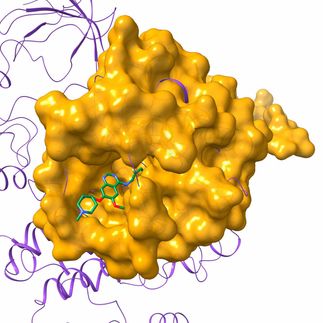Rhenovia launches drug discovery programs in rare, orphan and neglected neurodegenerative diseases
Neurological specialist will carry out research based on its unique biosimulation platforms
Rhenovia Pharma announced that it has initiated drug research programs in rare, orphan and neglected diseases.
Rare diseases are defined as those affecting fewer than one in 2,000. Eighty per cent are caused by genetic defects but they also include rare forms of cancer, auto-immune disorders, congenital malformations, infectious diseases and intoxications. France’s Ministry of Health data suggest that there are nearly 7,000 rare diseases. Europe alone accounts for some 25 million sufferers.
No cures exist for most rare diseases. The only currently available treatments are those that improve the quality of life. The annual Rare Diseases Day, which took place this year on February 29, extends the international recognition of these diseases with the aim of improving diagnosis and treatment.
Rhenovia’s decision to expand its expertise to cover rare, orphan and neglected diseases is based on the need to respond to this pressing challenge. Its initial focus will be on Huntington’s disease (HD) and Duchenne muscular dystrophy (DMD).
As a first step, Rhenovia is building a new biosimulation platform (RHENOMS (TM) STRI) aimed at modeling the complex interplay between biological mechanisms in striatum, the brain region that is most affected in HD. HD is a fatal, rare neurodegenerative disease that is particularly difficult to treat because of the very broad spectrum of symptoms it causes, involving involuntary movement disorders, cognitive deficits and psychiatric manifestations.
“It is exactly because of this variety and often opposite syndromes that the biosimulation approach is probably the most appropriate strategy in the search for new treatments,” said Doctor Serge Bischoff, president and CEO of Rhenovia. “It will allow us to integrate the complexity of the biological systems affected by HD and to address the multifactorial nature of this disease.”
The objective of Rhenovia’s HD program is to provide new tools and solutions to optimize the Drug Discovery and Development (DD&D) process and accelerate the search for new treatment strategies and medications, not only for relieving HD patients from their symptoms, but also for modifying the course of their illness. A further objective is to consolidate Rhenovia’s own pipeline of drug candidates.
A second direction in Rhenovia’s rare, orphan and neglected disease program is the development of a modeling and simulation platform designed to better understand the basic mechanisms underlying cognitive impairment and mental affects associated with muscular dystrophies with a first focus on DMD.
Most read news
Topics
Organizations
Other news from the department research and development

Get the life science industry in your inbox
By submitting this form you agree that LUMITOS AG will send you the newsletter(s) selected above by email. Your data will not be passed on to third parties. Your data will be stored and processed in accordance with our data protection regulations. LUMITOS may contact you by email for the purpose of advertising or market and opinion surveys. You can revoke your consent at any time without giving reasons to LUMITOS AG, Ernst-Augustin-Str. 2, 12489 Berlin, Germany or by e-mail at revoke@lumitos.com with effect for the future. In addition, each email contains a link to unsubscribe from the corresponding newsletter.





















































